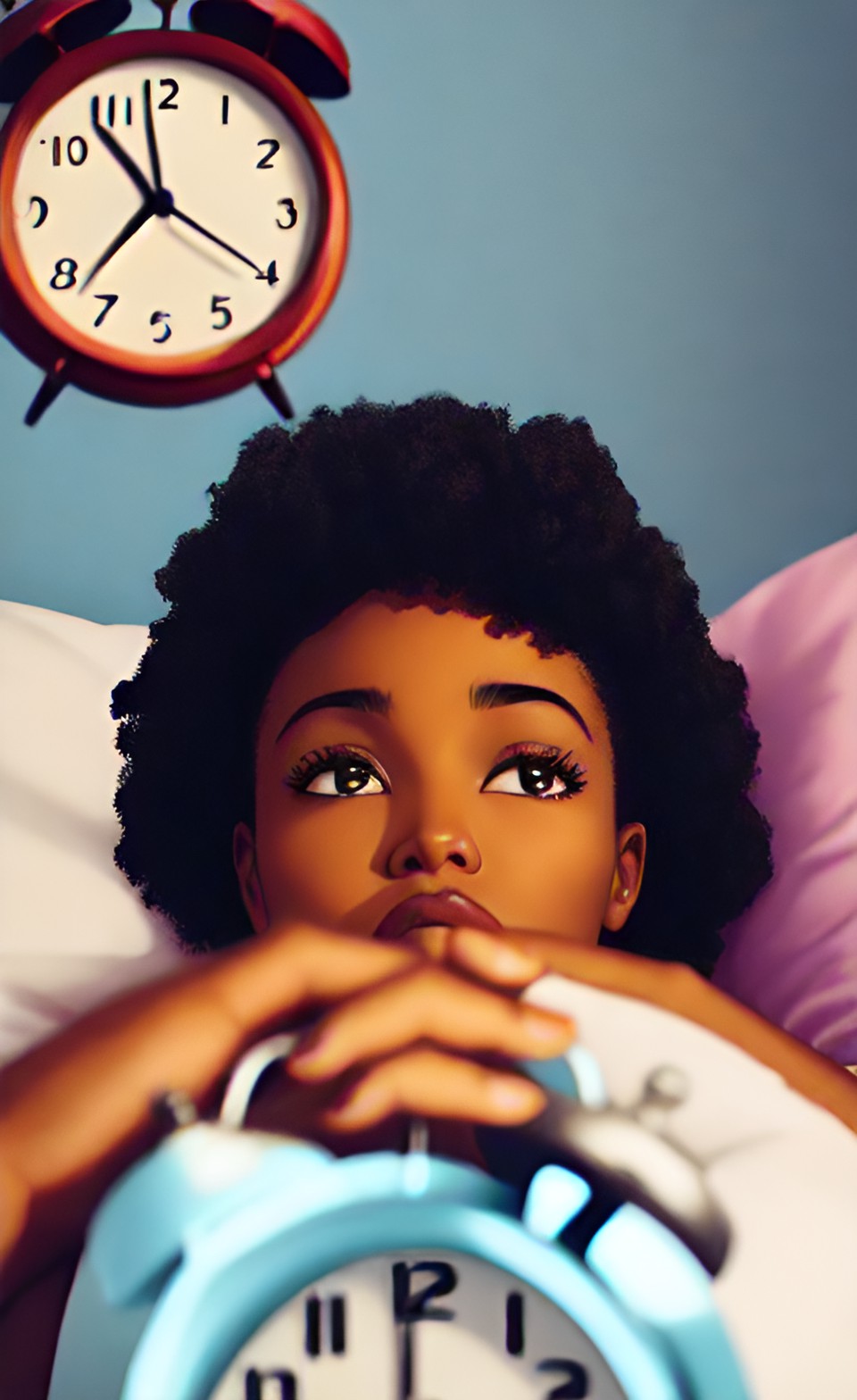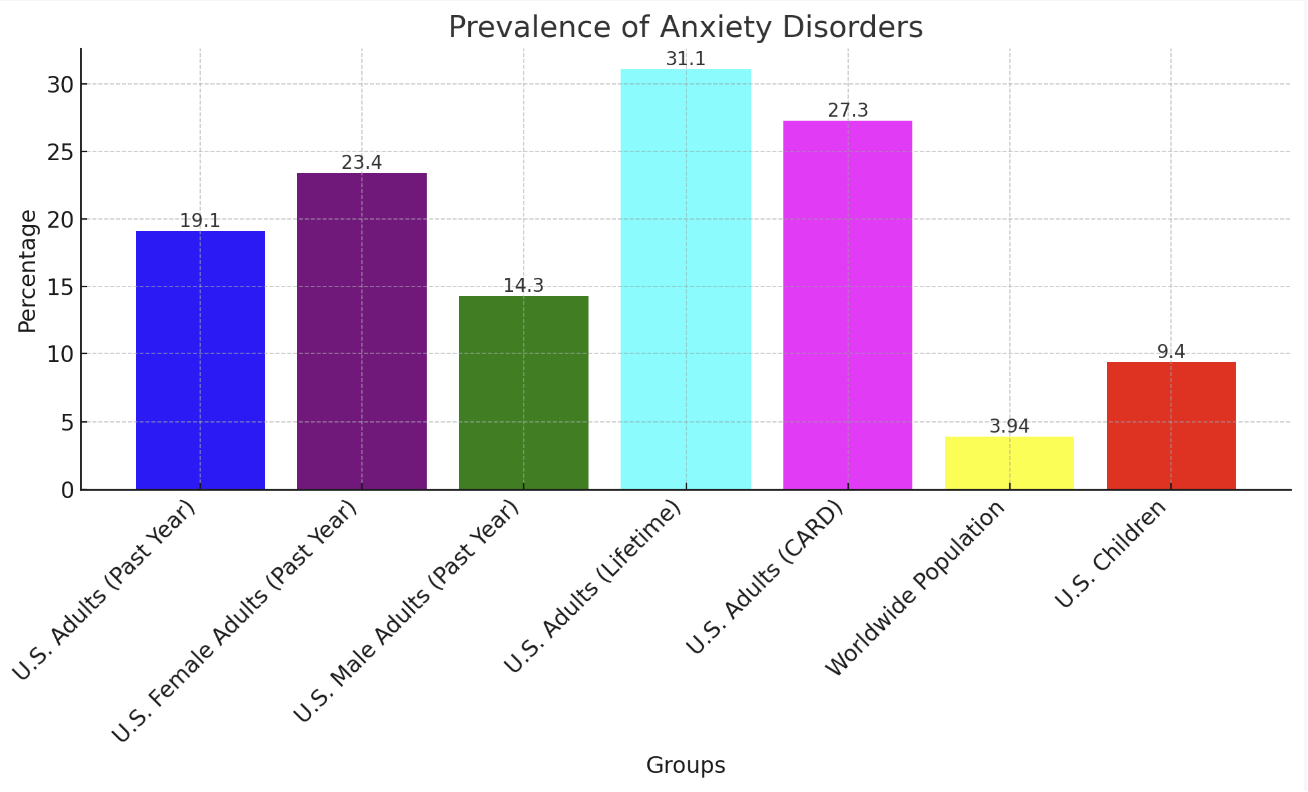
ASMR for Sleep and Anxiety: Your Ultimate Guide
Let me tell you about how fast-paced today's world is, where stress and anxiety often take center stage. When getting a good night's sleep started to feel like an elusive dream I spent many nights up.
The restless mind, racing thoughts, and tension can make falling asleep and staying asleep a challenge, it definitely was for me.
Fortunately, there's a soothing remedy gaining popularity for its ability to combat both sleeplessness and anxiety: ASMR.

What is ASMR?
I had to research this thing and found out it meant Autonomous Sensory Meridian Response (ASMR), a term used to describe a tingling sensation that can start on the scalp and move down the neck and spine, often accompanied by feelings of relaxation and well-being. Sounds like something I was looking for in more than one way.
ASMR is triggered by specific auditory, visual, or tactile stimuli. These triggers vary from person to person, but they typically involve gentle sounds or movements. So, your trigger might be different from mine.
ASMR for Sleep
Many individuals struggling with sleeplessness have turned to ASMR as a natural and effective solution and I'm willing to try anything safe and drug free.
The calming and hypnotic qualities of ASMR content I found helped quiet my mind, reduce my stress, and facilitate a more restful night's sleep. This might sound weird, but it can be addicting especially when you are getting the results you want.
Here's how ASMR can aid in improving sleep:
- Relaxation: ASMR videos are designed to induce relaxation. Soft-spoken voices, gentle hand movements, and soothing sounds can help calm the nervous system, making it easier to fall asleep. If you don't already know I have a thing for nail tapping.
- Stress Reduction: Anxiety is a common cause of insomnia. ASMR's ability to alleviate stress and anxiety can address the root causes of sleep disturbances. I do notice that if I have an important day scheduled I play it over in my mind the night before as if I was practicing.
- Distraction: ASMR provides a pleasant distraction from racing thoughts. Focusing on the triggers in an ASMR video can redirect your attention away from stressors. There's been plenty of days that I have just turned on YouTube and spent hours looking at the newest video and there is usually something new every day.
- Improved Sleep Quality: ASMR can promote deeper, more restorative sleep. When combined with other healthy sleep practices, ASMR may enhance overall sleep quality. In my opinion it is another form of meditation, just involving more stimulation.

Here's a bar chart visualizing the prevalence of anxiety disorders among different groups.
The groups and their corresponding percentages are as follows:
- U.S. Adults (Past Year): 19.1%
- U.S. Female Adults (Past Year): 23.4%
- U.S. Male Adults (Past Year): 14.3%
- U.S. Adults (Lifetime): 31.1%
- U.S. Adults (CARD): 27.3%
- Worldwide Population: 3.94%
- U.S. Children: 9.4%
ASMR for Anxiety
Can you believe those stats of how anxiety disorders affect millions of people worldwide. There is a major opportunity here the soothing effects of ASMR can be a valuable tool in managing anxiety.
Here's how ASMR can benefit individuals dealing with anxiety:
- Stress Relief: ASMR's gentle triggers can activate the body's relaxation response, reducing the physical symptoms of anxiety, such as increased heart rate and muscle tension.
- Mindfulness: ASMR encourages mindfulness by directing your focus to the present moment. This can help break the cycle of anxious rumination.
- Sleep Aid: Addressing sleep problems often associated with anxiety, ASMR can assist individuals in achieving a calmer state of mind conducive to falling asleep.
- Non-pharmacological Option: ASMR provides a drug-free and non-invasive approach to managing anxiety, making it an appealing choice for those who prefer holistic solutions. This is one of the biggest pros, I don't want to have to take any kind of medication unless it is from the earth.
ASMR Triggers for Sleep and Anxiety
ASMR content creators craft videos with a variety of triggers to cater to different preferences.
Common ASMR triggers for sleep and anxiety relief include:
- Whispering: Soft, gentle whispers can create a sense of intimacy and relaxation. I don't mind a little ear tingling.
- Tapping: Tapping on objects or surfaces produces rhythmic and soothing sounds. No besides the soothing sound I also love to see the nail art and theme of the video. My trigger is more visual and the tapping just adds a little extra stimulation.
- Crinkling: Crinkling noises, like rustling paper, can be surprisingly calming. I am not a big fan of extreme sounds unless accompanied by the visual aspect I enjoy.
- Personal Attention: Roleplay scenarios involving personal attention, such as a spa visit or medical examination, can reduce anxiety and promote relaxation. I am not a big fan of the roleplaying but there is one that I enjoy the most and that is the one where your friend whispers a secret
- Guided Meditation: ASMR-guided meditation sessions offer a structured approach to relaxation and anxiety reduction.
- Nature Sounds: Natural sounds like rain, waves, or birdsong can evoke a sense of tranquility. Before I ever thought about ASMR I liked to go to sleep to the sound of rain and city traffic.
ASMR for Sleep and Anxiety: FAQs
Q: Is ASMR backed by scientific research?
A: While ASMR is a topic of growing interest among researchers, more studies are needed to understand its mechanisms fully. Preliminary research suggests its potential benefits for relaxation and sleep.
Q: Can ASMR replace traditional treatment for anxiety and insomnia?
A: ASMR can complement traditional treatments, but it's not a substitute for medical or psychological interventions. Consult a healthcare professional for comprehensive guidance.
Q: What if ASMR triggers don't work for me?
A: ASMR triggers are highly individual. If certain triggers don't work for you, explore different types of ASMR content until you find what resonates with you.
Q: Can ASMR be used during the day to manage anxiety?
A: Absolutely. ASMR can be a useful tool for managing anxiety at any time, not just at bedtime. Many people use it to alleviate stress during the day.
ASMR and Statistics on Sleep and Anxiety
Understanding the prevalence and impact of sleep and anxiety disorders is crucial. Let's explore some statistics:
Insomnia:
- According to the American Sleep Association, 50-70 million adults in the United States suffer from a sleep disorder, with insomnia being the most common.
- The World Health Organization (WHO) estimates that 1 in 3 adults worldwide has trouble sleeping, with symptoms of insomnia.
Anxiety Disorders:
- Anxiety disorders affect approximately 40 million adults in the United States alone, according to the Anxiety and Depression Association of America (ADAA).
- The WHO reports that anxiety disorders are among the most common mental health disorders globally, with an estimated 264 million individuals affected.
Conclusion
ASMR has emerged as a powerful tool for promoting relaxation, relieving anxiety, and improving sleep quality.
While not a replacement for professional medical advice or treatment, ASMR offers a natural and accessible way to manage sleeplessness and anxiety.
If you struggle with sleep or anxiety, exploring ASMR content might be the key to unlocking a more peaceful and restful life.
?????Try different triggers, find your favorites, and embark on a journey toward better sleep and reduced anxiety?one soothing whisper or gentle tap at a time.
